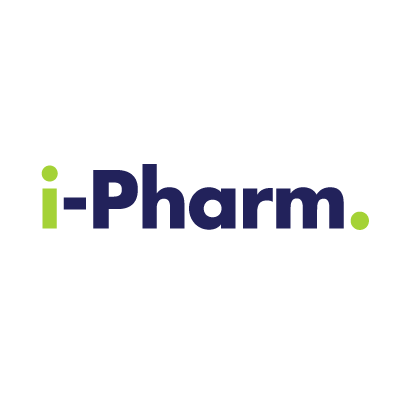Top Technical Operations Jobs in the Pharmaceutical Industry
20 Jun, 20239 minutesTechnology has become an integral part of our personal and professional lives, so it is unsu...

Technology has become an integral part of our personal and professional lives, so it is unsurprising that technical operations are now so crucial to the pharmaceutical industry. Tech Ops, also known as IT Ops, is responsible for ensuring that technology systems are run in an efficient and effective way, resulting in better drug discovery, manufacturing, and distribution. Tech Ops has vastly benefitted many areas of the pharmaceutical development process, from laboratory automation to data management, regulatory compliance, to pharmacovigilance.
Technical operations have achieved many significant milestones for the pharma industry, including enhanced productivity, patient safety, and improved drug development. Tech Ops has also given rise to a variety of job opportunities for IT professionals seeking rich and rewarding careers. Experts are predicting that the global IT operations market will reach a valuation of $131.5 billion by 2028, and with chronic skills shortages in areas such as cloud computing, cyber security, and data analytics, there are plenty of vacancies for Tech Ops candidates to choose from.
Tech Ops is a field with a bright future, and IT specialists seeking versatile, creative, and well-paid roles will surely be attracted to the profession. In this guide, we aim to give you an idea of the sort of jobs you can land in this booming sector, and we’ll explore the various applications of Tech Ops in the pharma industry.
What Is Tech Ops in the Pharmaceutical Industry?
The impact of technical operations on the pharma industry cannot be understated, as it has allowed firms to produce safer drugs more efficiently and in line with regulations.
The number one goal of any pharmaceutical company is to ensure that the drugs they manufacture are as safe as possible, and research shows that cutting-edge technology correlates with enhanced drug safety. This fact alone illustrates the importance of technology in pharma, but it is not just patient safety where Tech Ops has proven to be vital. Here are the key areas where it plays a key role:
Laboratory Automation. The aim of lab automation is to create automated systems that take care of repetitive and time-consuming tasks, freeing up time for drug researchers so they can focus on more important tasks. Those working in the field of lab automation use robotics and other technologies to make laboratories all the more efficient. With lab automation procedures in place, pharma firms can expect quicker experiment times and more accurate data.
Data Management. Technology assists data analysts in managing large volumes of data gathered from projects like clinical trials and drug research. Accurate analysis and interpretation of data are paramount to the drug development process, and having systems that make this task easier benefits both pharma firms and patients.
Manufacturing and Supply Chain Maintenance. Tech Ops professionals are tasked with implementing technology systems designed to aid manufacturing and supply chain management. Tasks such as inventory inspections, resource planning, and quality control can be time-consuming, but with automated technology systems, pharma companies can successfully streamline these responsibilities.
Cyber Threat Mitigation. Cybercrime is a serious threat that plagues many sectors of the economy, and the pharmaceutical industry has had to deal with its fair share of it. Analysis from 2021 found that 92% of drug firms are susceptible to data leakage, a staggering statistic that highlights the need for robust IT security measures, and cyber security specialists are tasked with using technologies like AI and biometrics to mitigate risks.
Infrastructure Management. Perhaps the most essential implementation of Tech Ops infrastructure management is the practice of ensuring that servers, networks, and databases are secure and reliable. Without a strong IT infrastructure, pharma companies wouldn’t be able to conduct vital IT-based operations, such as analysing clinical trial data, establishing cyber security protocols, or automating menial lab tasks.
Are you an aspiring professional looking for the latest Tech Ops-related pharmaceutical jobs? Well, check out our dedicated Tech Ops and Engineering page, where you can learn all about our commitment to helping clients find their ideal roles in this fascinating area.
The role of technical operations in drug development
A recent study by McKinsey & Company found that optimising technical operations can result in a 30% reduction in manufacturing costs for pharmaceutical companies. When the average cost of developing a new drug is around £1.2bn, this can lead to significant cost savings for pharmaceutical companies. However, the same study also noted that 75% of drug shortages are due to manufacturing and quality issues, further highlighting the need for efficient and effective processes throughout a drug’s life cycle.
Improving technical operations can also significantly impact the time it takes to bring a new drug to market. A report by the Pharmaceutical Research and Manufacturers of America found that the average time for a drug to move from clinical trials to FDA approval is 12 years. Optimising technical operations and streamlining manufacturing processes can shorten this timeline, allowing new drugs to reach patients more quickly. Without technical operations expertise, drug development could be delayed or hindered, leading to increased costs and delays in delivering life-saving treatments to patients.Top 5 Jobs in Technical Operations
Top 5 Technical Operations Jobs in Pharma
Not only has Tech Ops boosted efficiency and productivity in many aspects of the pharmaceutical manufacturing process, but it has also opened doors to a variety of enriching career paths for budding IT professionals.
Whether you are a computer science graduate or a seasoned IT specialist, there is bound to be a Tech Ops role that suits your skills. There are numerous reasons why you should consider a career in this area, not least for the competitive salaries, continuous learning opportunities, and growth potential. Here are 5 of the most in-demand technical operations jobs on the market:
1. IT Operations Manager
IT project managers are responsible for ensuring that a company’s technology systems and network infrastructure are secure and efficient. They lead teams of technicians and IT staff, supporting them with tasks such as infrastructure management, system maintenance, and IT compliance.
IT operations managers are required to display a specific set of skills, such as in-depth knowledge of software and hardware, excellent communication, and the ability to solve potentially complex technical problems. In the pharmaceutical industry, IT operations managers must ensure that the IT systems are able to support crucial tasks like research, manufacturing, and data management.
IT operations manager job responsibilities include:
Oversee device and password management
Implement strategies that maintain the reliability of the company’s networks and servers
Manage installations and upgrades to software and hardware
Make sure that data is handled in line with legal guidelines
Solve tech issues raised by technicians, engineers, and other members of staff
Employers typically prefer candidates to hold a degree in computer science, IT, or another related field. Demonstrable knowledge of data protection legislation and cloud computing is also an advantage. Any hands-on experience in an IT role would be beneficial to your application, but having previous experience as an IT operations manager is most desirable.
The average salary for this role is £58,767, a figure that will rise with experience.
2. Cyber Security Analyst
Pharmaceutical firms host a large volume of sensitive data collected from clinical trials, research projects, and patients, so maintaining a strong cyber security system is paramount.
There have been a number of high-profile cyber security breaches against pharmaceutical companies and health institutions in recent years, and attacks such as these threaten to jeopardise supply chains, manufacturing, and the production of life-saving treatments. Cyber security analysts employ strategies designed to minimise, identify and manage risks associated with cybercrime.
Cyber security analyst job responsibilities include:
Monitor for cyber threats and other illegal online activity
Study the latest trends in cyber threats and create strategies for repelling them
Examine existing systems for security weaknesses and upgrade accordingly
Provide training on cyber security issues such as spam and phishing emails
Test and assess security products
While many employers prefer a degree in computer science or another STEM subject, it is not a prerequisite for all cyber security analyst positions. Instead, it’s possible for those without a degree to take up an entry-level IT role that gives them sufficient hands-on experience to work their way up to being a cybersecurity analyst. Ideal candidates will also display core skills such as a passion for cyber security, problem-solving abilities, and outstanding communication.
The starting salary for this position is between £25,000 and £35,000, and higher incomes are achievable with increased experience.
3. Cloud Architect
Cloud architects are responsible for supervising a company’s cloud computing system, and given that so much of the pharma industry’s operations rely on tech, there can be little wonder why cloud architects are in such demand.
From overseeing cloud infrastructure to integrating cloud solutions into existing systems, they are tasked with a range of duties designed to enhance a firm’s cloud systems. As well as possessing exceptional IT skills, cloud architects are expected to be effective communicators and insightful problem-solvers.
Cloud architect job responsibilities include:
Routinely assess cloud applications and upgrade accordingly
Research and identify the best cloud architecture solutions that fit the needs of your company
Deliver cloud strategies in line with business objectives
Ensure that the cloud solutions meet security and compliance regulations
Collaborate with other teams to ensure that cloud adoption in all departments adheres to best practices
Employers expect cloud architects to have a Bachelor’s degree in computer science, computer engineering, or a related subject. They also expect a background in IT and supporting cloud systems, so gaining hands-on experience in another IT role beforehand is essential.
Cloud architecture is a relatively lucrative career path, with the average salary sitting at around £95,000.
4. Database Administrator
Data is fundamentally important to the pharmaceutical industry, particularly when it comes to examining clinical trial results. Database administrators are responsible for maintaining the integrity and security of databases. It is their job to ensure that data is easily accessible and clearly defined, and a combination of technical operations know-how and excellent communication is required.
Simply put, the production of potentially life-saving drugs could not happen without the maintenance of critical research, development, and manufacturing data, and database administrators are tasked with ensuring that this critical data is stored correctly.
Database administrator job responsibilities:
Monitor security and accessibility of databases
Create and test backup and recovery plans
Maintain data standards in accordance with the Data Protection Act
Collaborate with IT project managers and database programmers and provide expert guidance where required
Install and evaluate new versions of database management systems
While it would be useful to have a degree in computer science, computer software, or another IT-related subject, it is not strictly required to enter the profession. Even those with strong all-round IT skills can apply, as long as they have some sort of experience in the IT sector.
Many positions require candidates to demonstrate knowledge of structured query language (SQL), Unix and DBMS, so be sure to brush up on these before applying. Core skills for the role include familiarity with data manipulation languages, outstanding problem-solving abilities, and effective communication.
As a data administrator, you can expect to earn an average salary of between £35,000 and £45,000.
5. Automation Engineer
The pharmaceutical industry is always looking for innovative ways to cut costs and boost safety, and automation is at the heart of that ambition. Automation engineers are responsible for implementing automated tech systems designed to make the drug development process all the more efficient. Reducing the need for human labour while enhancing efficiency is no easy feat, and that’s why automation engineers must possess a blend of in-depth technical knowledge with outstanding analytical and communication skills.
Automation engineer job responsibilities include:
Look for new ways to automate systems and work processes
Design and test automation equipment
Identify errors with product and software development and provide relevant solutions
Communicate the status of automation activities to colleagues
Work in accordance with quality assurance guidelines
Automation engineering is a career path that involves plenty of technical expertise, so candidates should ideally hold a Bachelor’s degree in electrical engineering, mechanical engineering, or a related subject. Hands-on experience with AI and machine learning equipment is desirable, and a firm understanding of computer programming will also make your application stand out. You must also convey your passion for keeping up to date with the latest trends in the world of automated technology.
On average, automation engineers make around £60,000, and salaries of above £100,000 are achievable for senior professionals.
Technical operations has revolutionised the pharmaceutical industry by leveraging technology to enhance productivity, ensure patient safety, and drive drug development. Tech Ops encompasses various crucial areas such as laboratory automation, data management, manufacturing and supply chain maintenance, cyber threat mitigation, and infrastructure management. These advancements have resulted in safer and more efficient drug manufacturing processes, improved data analysis for better drug development, streamlined supply chain management, and strengthened cybersecurity measures.
As the pharmaceutical industry continues to evolve, the significance of Tech Ops will only increase. Organisations will rely on technology to drive innovation, meet regulatory requirements, and address emerging challenges. Individuals aspiring to work in this dynamic field can look forward to a bright future with abundant career prospects.
Want to Learn More About How We Recruit for Pharmaceutical Jobs?
As a pharmaceutical recruitment agency with a passion for procuring top talent, we go above and beyond to help our candidates discover their dream pharmaceutical jobs. If you’d like to check out the latest life sciences jobs, be sure to head to our job search page. We look forward to talking to you about your career goals, and encourage you to reach out to us today to find out how we can support you.










